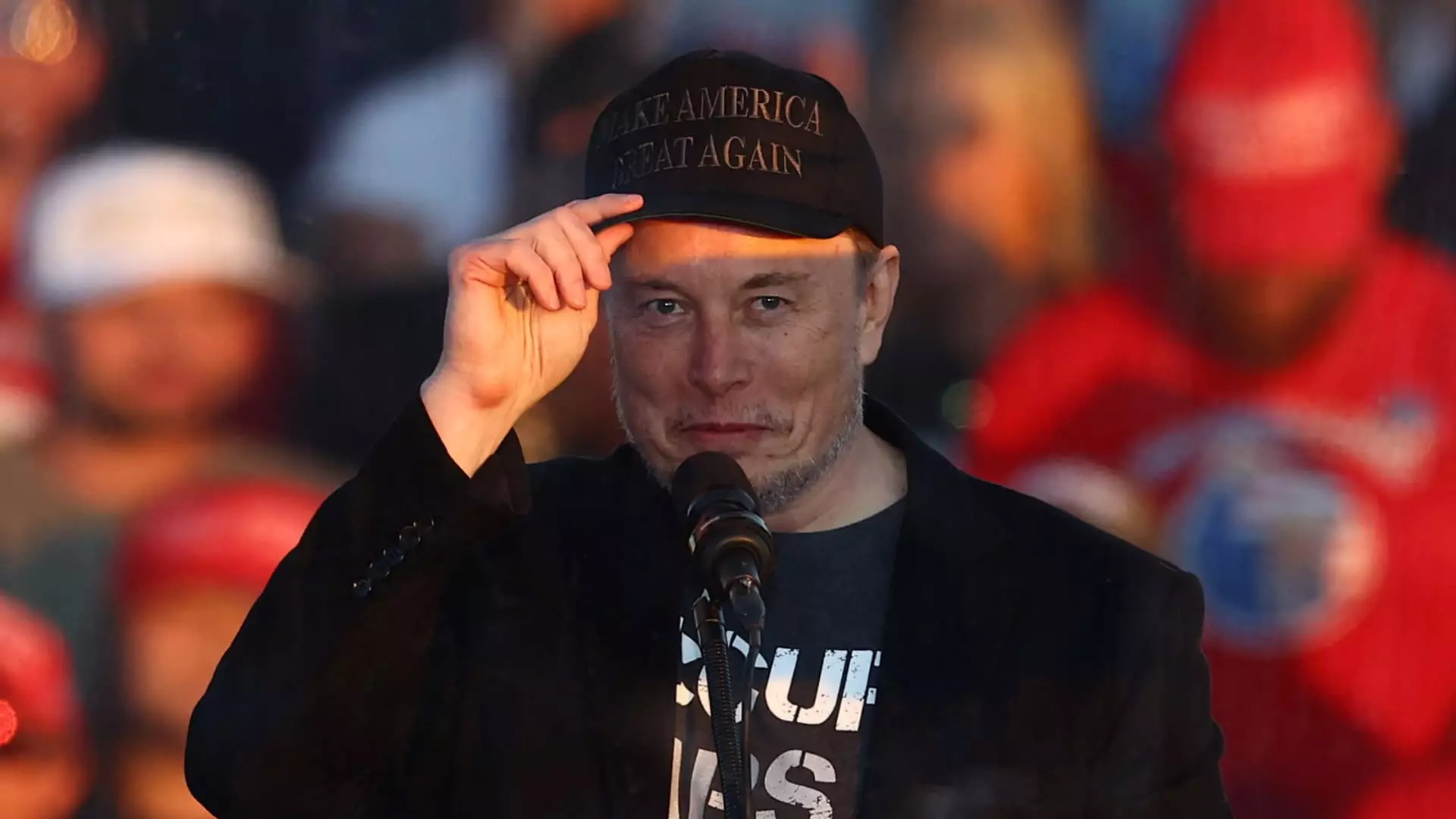Elon Musk, the CEO of Tesla and one of the most prominent figures in the tech industry, has made headlines once again—not for his innovations in electric vehicles or space travel, but for his foray into politics. His recent endorsement of the far-right Alternative for Germany (AfD) party has ignited significant controversy and discussions about the intersection of technology, wealth, and global politics.
With over 200 million followers on the social media platform X, Musk wields immense influence. His statement, claiming that “Only the AfD can save Germany,” not only reflects his personal beliefs but also raises questions about the responsibilities tied to his platform. The endorsement was made in response to comments made by Naomi Seibt, a far-right influencer with a controversial history, particularly concerning her denial of mainstream climate science. By aligning himself with such figures and ideologies, Musk risks alienating a substantial portion of his following and damage to the brands he represents.
Musk’s endorsement can be seen as part of a larger trend where wealthy tech entrepreneurs venture into political territory, often with little accountability. His financial backing of Donald Trump’s campaign, which exceeded $277 million, illustrates how private funding can sway political landscapes. As seen with the AfD’s rising popularity among German voters, the implications of such endorsements can be far-reaching, affecting public discourse and election outcomes in significant ways.
In Germany, the political climate is fragile, particularly following the collapse of the left-wing coalition under Chancellor Olaf Scholz. Musk’s intervention comes at a time when the AfD is polling strongly, recently positioning itself as the second choice for voters ahead of critical elections. The party’s controversial stances, which include a dismissive approach to Russia’s war against Ukraine and extreme nationalist rhetoric, echo sentiments that Musk has expressed in various forums.
Scholz’s rejection of Musk’s claims indicates a deeper concern among traditional political leaders about the AfD’s ideology, which some critics argue is reminiscent of Nazi propaganda. This brings to light the moral responsibilities that come with political endorsements: Musk’s influence might embolden extremist parties, further polarizing the political landscape at a time when unity is crucial.
Interestingly, while Musk promotes his vision of technological advancement through Tesla, the AfD has criticized the company’s operations in Germany. They claim that Tesla’s plant outside Berlin does not significantly benefit the local economy since many employees commute from neighboring countries. This contradiction highlights a tension between the economic benefits that Musk’s ventures could bring and the nationalist sentiments that the AfD champions.
In addition, the ideological battle surrounding electric vehicles in Germany complicates this relationship. The AfD’s skepticism about climate initiatives echoes Musk’s often combative approach to regulatory frameworks. This framing of electric vehicles as part of a broader ideological conflict may hinder the acceptance of sustainable technologies critical for combating climate change.
Musk’s recent endorsements are not limited to Germany. His support for right-wing leaders across Europe and Latin America, including Italy’s Giorgia Meloni and Argentina’s Javier Milei, paints a picture of a CEO whose politics align with populist and nationalist movements. This broad embrace of right-wing politics suggests that Musk sees value in aligning with leaders who espouse similar ideals, potentially signaling a unified front against established governance and progressive agendas.
Moreover, Elon Musk’s influence on global politics invites scrutiny of the ethical implications surrounding tech billionaires’ roles in shaping public policy. His actions evoke questions about the extent to which an individual’s financial power can impact democracy and governance worldwide.
Elon Musk’s political endorsements have implications that extend beyond his corporate ambitions—they tap into the complex interplay between technology, wealth, and ideology in shaping contemporary politics. As the world witnesses the rise of far-right sentiments in various countries, Musk’s influence may serve to amplify these movements, reminding us of the profound impact that influential figures can have on global political dynamics.


Leave a Reply